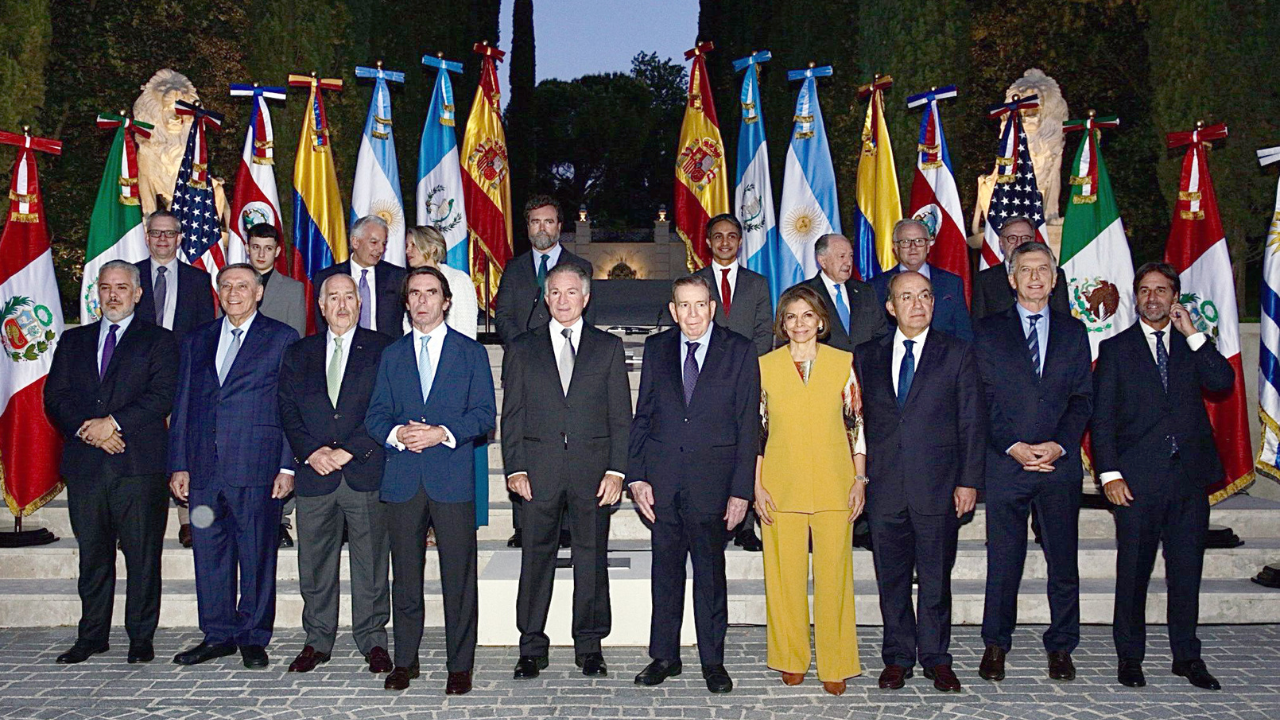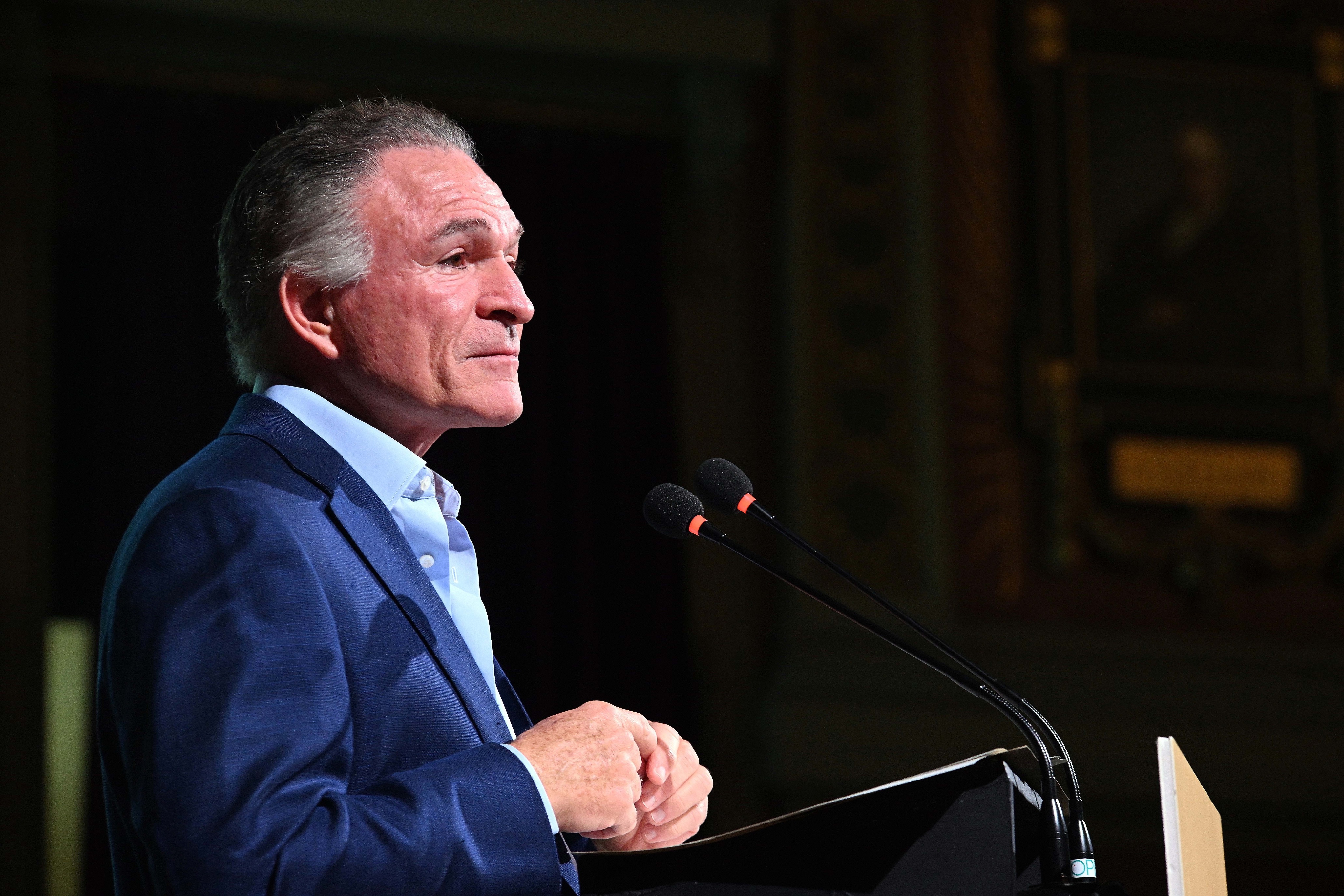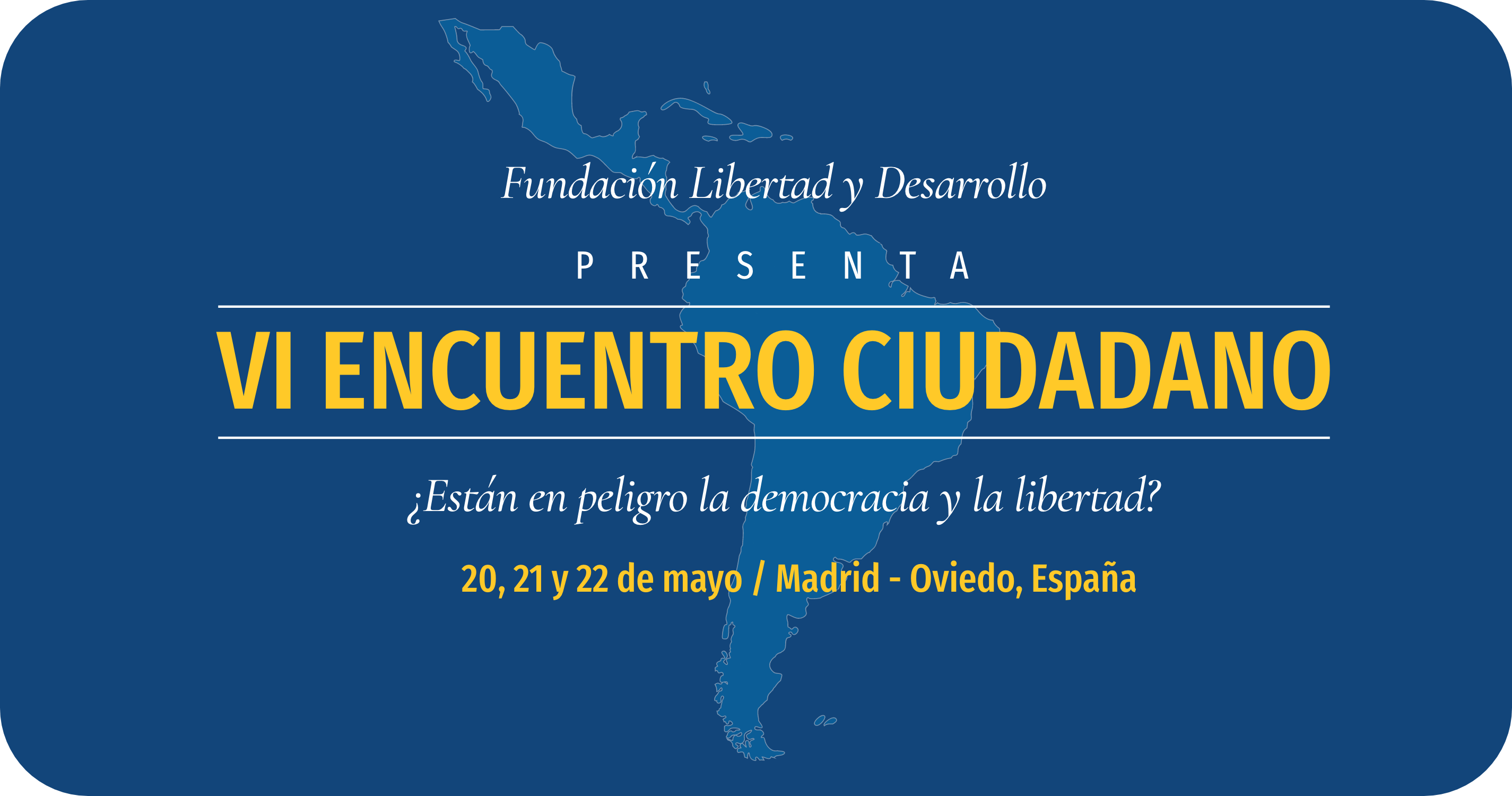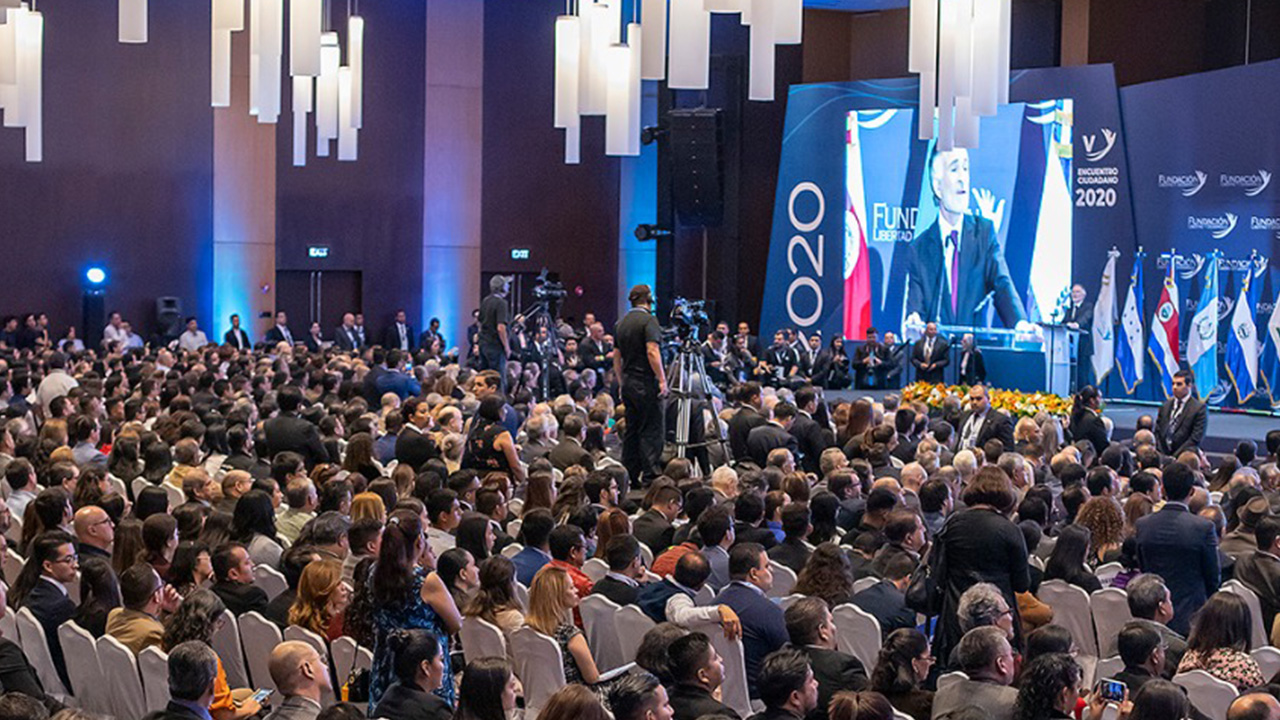
Dionisio Gutiérrez leads a summit for freedom in Ibero-America
After several intense days between Madrid and Asturias, the VI Citizen Convention, organized by Fundación Libertad y Desarrollo, concluded as one of the leading Ibero-American platforms for political dialogue, institutional defense, and reflection on the challenges facing liberal democracy in the region. Dionisio Gutiérrez, president of the Foundation, was the event’s main host and unifying voice, bringing together former presidents, intellectuals, academics, and opinion leaders.
 The event officially opened on May 20 in Madrid with the "Dinner for Freedom," an evening that marked the beginning of three days of exchanging ideas and reaffirming shared values. In his address, Gutiérrez warned about the rise of authoritarianism and populism in Latin America and called for restoring trust in politics through leadership by example and integrity: “We are facing a civilizational crisis in which politics cannot be abandoned,” he stated. He also evoked the moral and intellectual legacy of Mario Vargas Llosa and highlighted the role of figures such as Edmundo González Urrutia in the defense of democracy.
The event officially opened on May 20 in Madrid with the "Dinner for Freedom," an evening that marked the beginning of three days of exchanging ideas and reaffirming shared values. In his address, Gutiérrez warned about the rise of authoritarianism and populism in Latin America and called for restoring trust in politics through leadership by example and integrity: “We are facing a civilizational crisis in which politics cannot be abandoned,” he stated. He also evoked the moral and intellectual legacy of Mario Vargas Llosa and highlighted the role of figures such as Edmundo González Urrutia in the defense of democracy.
 During the dinner, Álvaro Vargas Llosa, vice president of the Fundación Internacional para la Libertad, and Iván Duque, former president of Colombia, also spoke. Both emphasized the need to persevere in the face of populist threats and to strengthen democratic coordination platforms such as the Grupo Libertad y Democracia.
During the dinner, Álvaro Vargas Llosa, vice president of the Fundación Internacional para la Libertad, and Iván Duque, former president of Colombia, also spoke. Both emphasized the need to persevere in the face of populist threats and to strengthen democratic coordination platforms such as the Grupo Libertad y Democracia.
 The following day, at the emblematic Ateneo de Madrid, Gutiérrez participated in the eventos of the Libertad y Democracia Group and the International Foundation for Liberty. There, the president of Fundación Libertad y Desarrollo underscored the continued relevance of the Peruvian Nobel Prize liberal thought and reaffirmed the commitment of the Libertad y Democracia Group to building a free, institutional, and plural Ibero-America: “We must uphold liberal principles in the face of the ideological confusion affecting elites and citizens alike,” said Gutiérrez before an audience of former presidents, parliamentarians, writers, and academics.
The following day, at the emblematic Ateneo de Madrid, Gutiérrez participated in the eventos of the Libertad y Democracia Group and the International Foundation for Liberty. There, the president of Fundación Libertad y Desarrollo underscored the continued relevance of the Peruvian Nobel Prize liberal thought and reaffirmed the commitment of the Libertad y Democracia Group to building a free, institutional, and plural Ibero-America: “We must uphold liberal principles in the face of the ideological confusion affecting elites and citizens alike,” said Gutiérrez before an audience of former presidents, parliamentarians, writers, and academics.
 The peak day took place on May 22 at the Teatro Campoamor in Oviedo, where Gutiérrez officially inaugurated the VI Citizen Convention before 1,300 attendees. Prior to the event, he accompanied invited former presidents on an official visit to the Parliament of the Principality of Asturias, where they were welcomed by local authorities. The visit underscored the institutional character of the Convention and the historical ties between Spain and Latin America.
The peak day took place on May 22 at the Teatro Campoamor in Oviedo, where Gutiérrez officially inaugurated the VI Citizen Convention before 1,300 attendees. Prior to the event, he accompanied invited former presidents on an official visit to the Parliament of the Principality of Asturias, where they were welcomed by local authorities. The visit underscored the institutional character of the Convention and the historical ties between Spain and Latin America.
 In his opening speech in Oviedo, Gutiérrez was emphatic: “Freedom is a wounded word in Latin America. We live under the false freedom of despots who distort it, manipulate it, and turn it into a tool of submission.” In response to this decline, he announced the creation of a permanent academic forum to debate ideas and transform them into concrete proposals for the region.
In his opening speech in Oviedo, Gutiérrez was emphatic: “Freedom is a wounded word in Latin America. We live under the false freedom of despots who distort it, manipulate it, and turn it into a tool of submission.” In response to this decline, he announced the creation of a permanent academic forum to debate ideas and transform them into concrete proposals for the region.
During the Convention, Gutiérrez also moderated the first panel, Politics and Development: Two Sides of the Same Coin, featuring former presidents José María Aznar, Felipe Calderón, Mauricio Macri, and Andrés Pastrana. Aznar emphasized that “the crises we face are fundamentally political,” while Calderón warned about the loss of citizen trust in regional democracies.
 The agenda continued with thematic panels on authoritarian populism, political leadership, democratic values, and technological challenges, featuring participants such as Álvaro Vargas Llosa, Laura Chinchilla, Luis Lacalle Pou, Iván Espinosa de los Monteros, Lorent Saleh, Eduardo Fernández, Agustín Antonetti, Juan Luis Cebrián, Jamil Mahuad, Brian Ware, George Piro, and Félix Sanz Roldán, as well as prominent moderators including Claudia Gurisatti, José Suárez, and DC Page.
The agenda continued with thematic panels on authoritarian populism, political leadership, democratic values, and technological challenges, featuring participants such as Álvaro Vargas Llosa, Laura Chinchilla, Luis Lacalle Pou, Iván Espinosa de los Monteros, Lorent Saleh, Eduardo Fernández, Agustín Antonetti, Juan Luis Cebrián, Jamil Mahuad, Brian Ware, George Piro, and Félix Sanz Roldán, as well as prominent moderators including Claudia Gurisatti, José Suárez, and DC Page.
The VI Citizen Convention concluded with a hopeful message from Gutiérrez: “Ibero-America doesn’t need nostalgia; it needs a new shared ideal. The future is in our hands.”
 As part of the closing activities, a tribute to Ibero-American migration was held with a solemn ceremony at the Archivo de Indianos and Museum of Emigration in Colombres, Asturias. During the event, Dionisio Gutiérrez raised the Guatemalan flag as a symbol of the historical bond between both sides of the Atlantic and was officially welcomed by the Friends of the Archivo de Indianos Foundation. The president of the Principality of Asturias, Adrián Barbón, attended the ceremony and stated: “We are here to honor Guatemala, a land of forests like Asturias. Migration shaped Spain, and Asturias is a clear example.” The event celebrated the legacy of Ibero-American migrants as builders of identity and freedom, in a moving conclusion that reaffirmed the Convention’s spirit of unity.
As part of the closing activities, a tribute to Ibero-American migration was held with a solemn ceremony at the Archivo de Indianos and Museum of Emigration in Colombres, Asturias. During the event, Dionisio Gutiérrez raised the Guatemalan flag as a symbol of the historical bond between both sides of the Atlantic and was officially welcomed by the Friends of the Archivo de Indianos Foundation. The president of the Principality of Asturias, Adrián Barbón, attended the ceremony and stated: “We are here to honor Guatemala, a land of forests like Asturias. Migration shaped Spain, and Asturias is a clear example.” The event celebrated the legacy of Ibero-American migrants as builders of identity and freedom, in a moving conclusion that reaffirmed the Convention’s spirit of unity.


